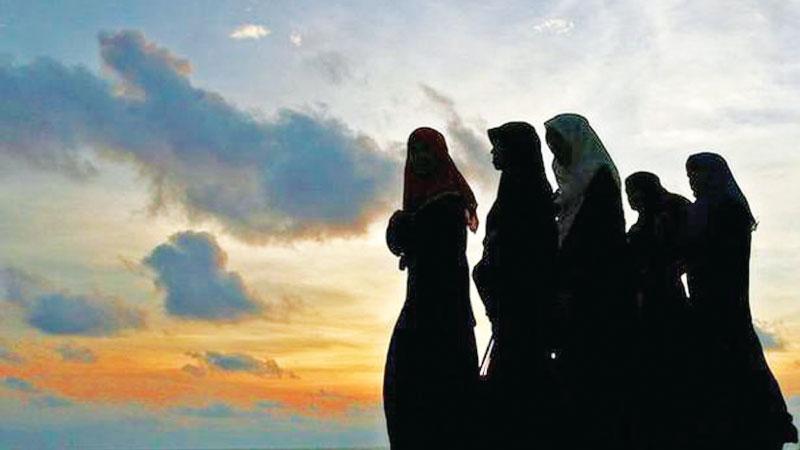
The Human Rights Commission of Sri Lanka (HRCSL) in a landmark ruling earlier this month recommended that “preventing teachers from wearing the Abaya while performing their duties is a violation of Articles 10, 12 (1), 12 (2) and 14 (e)” of the Sri Lankan Constitution.
The HRCSL in its recommendation stated that national schools are bound by the Constitution and cannot violate the absolute right to religious freedom under Article 10, and reiterated the need for respect for diversity and pluralism in a multi-ethnic and multi-religious country such as Sri Lanka. They called upon the Ministry of Education and the Zonal Education Director to conduct ‘awareness raising programs’ on diversity and pluralism, for school principals, teachers, students and parents.
It was in March, last year that four Assistant Teachers of Sri Shanmuga Hindu Ladies College, Trincomalee, lodged a complaint with the HRCSL that the Principal and the Board of Management of the school had prohibited them from wearing the Abaya while they were performing their duties at the school.
The school’s stance on the matter was that historically the school, (which was founded in 1923 by Thangamma Shanmugampillai, a Hindu), has followed Hindu traditions and wearing the Abaya was not in line with the customs and traditions of the school. In April 2018, a group of parents and teachers from the Hindu community protested in front of the school gates demanding that the teachers abide by an entrenched school ‘dress code’ which was essentially the Hindu style saree. They required teachers to wear saree - as some had done before them- and also don a hijab (a headscarf) -to cover their heads.
This prohibition and demonstrations against teachers wearing Abaya to school took place in the backdrop of ethnic violence against Muslim communities both in the East and the Central hills of the country by extremist Sinhala factions. In February 2018, violence broke out in Ampara against Muslim owned eateries and shops, alleging that a restaurant owned by a Muslim businessman offered rice mixed with sterilisation pills to its Sinhalese customers. Even before the embers of this incident cooled down, anti-Muslim violence began in the Central Hills. Starting as a minor incident between a driver and a few youth, this claimed at least two lives and had even spread to Kandy in the central province, by the next day.
Later, the four assistant teachers were reportedly transferred to other Muslim schools in the district. The HRCSL recommends that the denial of the right of the complainants to wear their traditional dress as well as the arbitrary nature of the transfers to other schools, were done on the basis of the religion of the complainants. Hence, the rights to which the complainants are entitled as per Article 12 (1) and 12 (2) of the Constitution had been violated. The Commission states in its recommendation, that although the manifestation of religion, under Article 14 (1) (e), can be restricted in order to recognise and respect the rights and freedoms of others, ensuring another person’s religious freedom does not require barring the wearing of the Abaya at school.
The Commission also made special note of concerns about the use of Social Media such as Facebook, as a medium of sharing information about the complaint and the Commission’s hearings.
“To share information related to the case, in the public domain without any regard for the confidentiality of the proceedings and without the permission of the parties concerned or the Commission, is a breach of ethical responsibilities”, the HRCSL reported. Instead, it was used as a weapon in campaigns to incite religious and ethnic hatred and violence; it called for all citizens to be mindful of the misuse of Social Media and to use it responsibly as a tool to promote inter- ethnic and inter-religious understanding and harmony. (VF)
